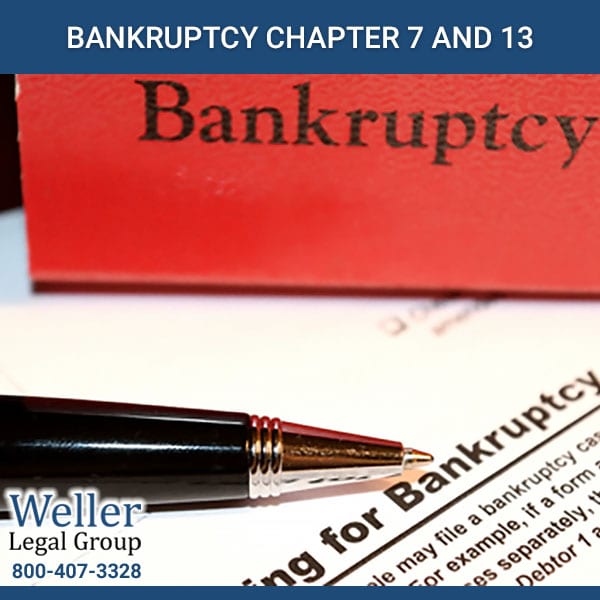 Chapter 7 and 13 bankruptcy is the most commonly filed forms of bankruptcy in the United States. Chapter 7 bankruptcy is often called a straight bankruptcy or a straight liquidation. For most of our clients who file Chapter 7 bankruptcy, however, there is no liquidation of their assets. For most forms of bankruptcy, including Chapter 7 and Chapter 13, the debtor or debtors are able to employ what are called exemptions. Exemptions are assets that the debtor is able to exempt or exclude from the seizure by the Chapter 7 trustee, or exclude from the amounts that must be paid to certain creditors in a Chapter 13 bankruptcy.
Chapter 7 and 13 bankruptcy is the most commonly filed forms of bankruptcy in the United States. Chapter 7 bankruptcy is often called a straight bankruptcy or a straight liquidation. For most of our clients who file Chapter 7 bankruptcy, however, there is no liquidation of their assets. For most forms of bankruptcy, including Chapter 7 and Chapter 13, the debtor or debtors are able to employ what are called exemptions. Exemptions are assets that the debtor is able to exempt or exclude from the seizure by the Chapter 7 trustee, or exclude from the amounts that must be paid to certain creditors in a Chapter 13 bankruptcy.
Depending upon the jurisdiction, the debtor may apply either State or Federal exemptions, or a combination of both. Such exemptions are determined by the applicable legislative body to be necessary for the basic functions needed for the debtor’s maintenance of his or her household. For example, in Florida, there is a homestead exemption which protects most debtors from seizure of their homestead or home from attachment by creditors outside of bankruptcy, or seizure by a bankruptcy trustee, within a bankruptcy.
A debtor may not qualify to file a Chapter 7 bankruptcy if his or her income significantly exceeds the median income as determined by the place where the debtor resides and seeks to file bankruptcy, and as determined by the number of persons in the debtor or debtors’ household. The US Trustees Office is assigned the duty of publishing the median income determinations.
Chapter 13 bankruptcy in some ways is more complex than Chapter 7 bankruptcy, and affords the debtor more tools to address his or her debts. Chapter 13 bankruptcy is often employed by persons seeking to stop foreclosures on their homes or other real property. In a Chapter 13 bankruptcy, one can sometimes eliminate second mortgages on homesteads. A Chapter 13 debtor may either value his automobile where he or she only pays the true value of the automobile through the Chapter 13 plan, or alternatively, may “refinance” the automobile, which often saves the debtor a significant amount of money in interest charges.
Chapter 13 bankruptcy and Chapter 7 bankruptcy can confer many additional benefits that are beyond the subject of this article. If you are interested in more information, please examine our website, which contains information on most matters relating to bankruptcy.
If you are considering whether to file Chapter 7 or Chapter 13 bankruptcy, please contact our law office at 1-800-407-3328 (DEBT), or contact us through our website. If you are in debt, we can help.
Picture Credit: www.123rf.com

